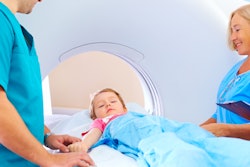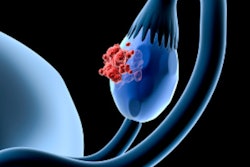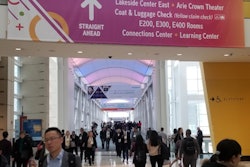
Deferring steroid premedication in patients with noted iodinated contrast allergies who must undergo CT improves operations in the emergency department (ED) and reduces patient length of stay, according to research delivered at the recent RSNA meeting.
This is pertinent particularly for patients who, although their chart may note contrast allergy, don't fit premedication guidelines established in the American College of Radiology's (ACR) Manual on Contrast Media, wrote a team led by session presenter Dr. Yosef Berlyand of Massachusetts General Hospital and Brigham and Women's Hospital in Boston.
"[We found that] a chart-documented iodinated contrast allergy resulted in a significant increase in time to obtain a contrast-enhanced CT study ... [and that this] delay persisted [even] among patients who did not meet criteria for premedication," the group noted.
Corticosteroids are often given to patients who need to undergo CT imaging but who have had prior mild or moderate allergic-like response to intravenous, iodinated imaging agents. Yet the efficacy of this protocol is not completely clear, and it can cause unnecessary care delays, according to the ACR.
"The largest risk of premedication is indirect and related to the delay in diagnosis imparted by the multi-hour duration of [it]," the manual states.
Berlyand's group sought to explore whether iodinated contrast media allergy noted in a patient's medical record in fact does have a care-delay effect via a study that included 454 patients with a listed iodinated contrast allergy who underwent CT. Of these 454 individuals, 106 received contrast; the investigators assessed whether premedication was necessary based on ACR guidelines, taking into account patient demographics, clinical characteristics, and outcomes.
Not surprisingly, the researchers found that patients without known allergy to contrast underwent contrast-enhanced CT more than those with noted allergy, at 45.9% compared with 23.3%, and that the time from ordering of the exam to its start was longer for allergic patients, at 360 minutes compared with 118 minutes for nonallergic patients. Beryland's group attributed those delays to the premedication protocol for the 106 patients with noted allergy to the contrast agent.
However, more than a quarter (25.5%) of these patients with noted contrast allergy didn't meet the ACR's premedication criteria -- and following the protocol translated to an average order-to-start time of 296 minutes -- longer than the time for nonallergic patients (118 minutes) and comparable to the order-to-start time found for the 79 patients with noted contrast allergy who did meet ACR's premedication criteria (382 minutes).
The results underscore the importance of consulting the ACR's CT imaging premedication guideline, as there may be good reason to actually avoid premedication in patients with noted contrast allergies, according to the group.
"Appropriately deferring premedication in patients with listed contrast allergies who do not meet ACR criteria for premedication can improve emergency department operations and may potentially reduce [patients'] length-of-stay by over four hours," the team concluded.





















